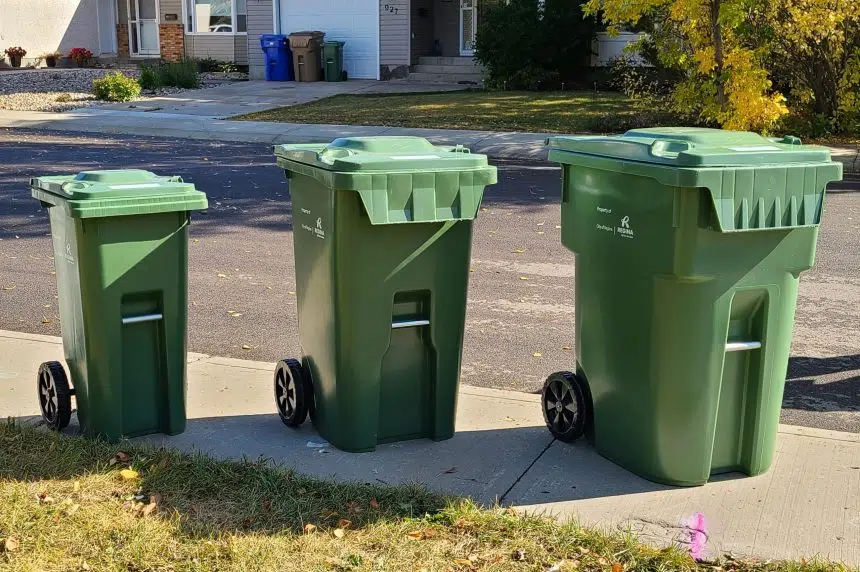The City of Regina is giving the green light for green bins.
After what the city is calling a “successful pilot,” curbside compost collection will begin in the fall of 2023.
“This is a very exciting time for the Regina residents and a big step forward to becoming a more sustainable city,” said Kurtis Doney, director of water, waste and environment for the City of Regina. “The City used data and feedback from our pilot participants to build a food and yard waste service specific to the needs of Regina residents.
“The city-wide service will save landfill space, reduce greenhouse gas emissions and the material collected will be processed to create a useable product.”
Regina residents can expect:
- A 240-litre green cart will be used to collect the material, two-thirds the size of the blue carts that residents have today.
- All food scraps, including meat, bones, dairy and greases, yard waste and soiled paper (paper towel, cardboard and tissues) can go into the green cart, which will divert roughly 50 per cent of the waste that is currently going into the garbage in Regina.
- Residents can use compostable bags.
- Green carts will be collected weekly between April and October and biweekly between November and March; garbage will be collected biweekly year-round. Solid waste services can be funded through property tax, user fees or a combination of both.
According to a report prepared by the city administration, the program is expected to cost $7.5 million — although moving to biweekly garbage collection would save $1.5 million a year so the cost with those savings is pegged at $6 million.
Another $5.5 million would be spent in 2022 and $700,000 in 2023 to purchase the green carts.
By the second quarter of next year, the city will have to make a decision as to how the program will be paid for — whether the money comes from general revenue, user pay or both. If it’s completely user pay, the report said it would cost between $105 and $120 a year per homeowner.
This new service is part of the city’s long-term solid waste management plan to send less waste to the landfill and reach the 65 per cent residential diversion target.
A year-round collection of green carts has the potential to increase residential diversion to over 50 per cent as shown in the pilot. The volume of waste disposed at the landfill is expected to decrease by around 24,000 tonnes per year, eliminating 10,820 tonnes of greenhouse gas emissions and extending the life of the city’s landfill.











